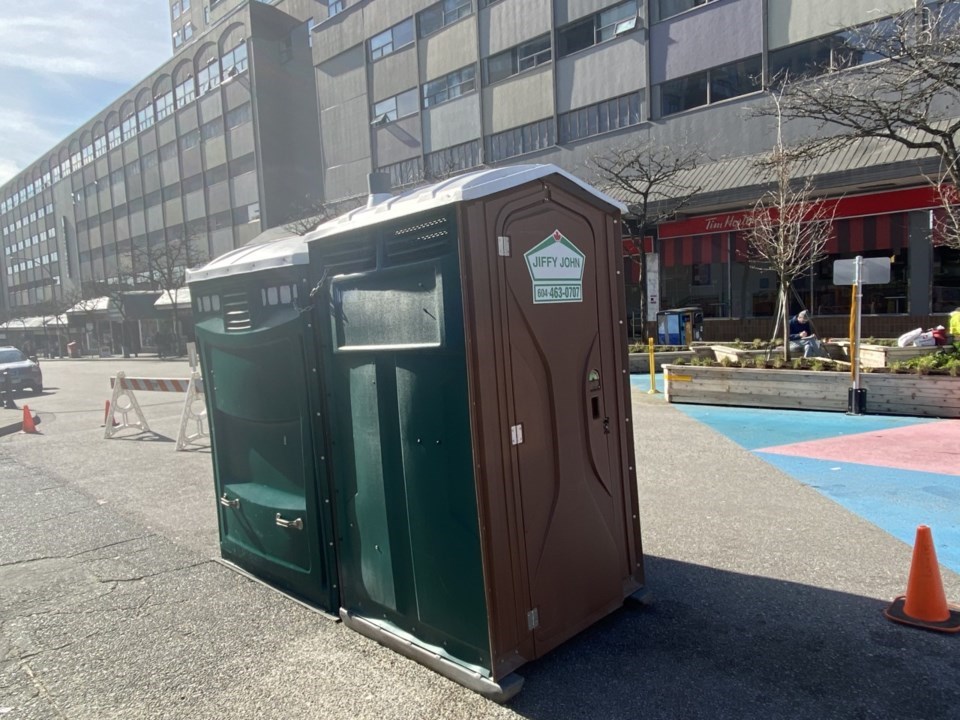The City of New Westminster is exploring ways to tackle the increase in human waste in public areas.
In the early days of the pandemic, the city provided portable washrooms at several locations in the city. With many businesses and faith-based organizations shuttered by the pandemic, people, including those who are homeless, had fewer washroom facilities.
A recent report to council included an update from the city’s at-risk and vulnerable persons task force. Among the items covered in the report was washroom access for precariously housed and unsheltered individuals.
“One of the most significant concerns raised is the presence of human waste in the downtown and other neighbourhoods,” said the update to council. “This issue has been aggravated by limited access to business, faith-based and non-profit toil facilities.”
According to the report, staff has conducted research into free-standing, self-cleaning toilets.
Staff are working on a report that’s expected to go to council at its Aug. 30 meeting. It will include recommendations related to toilet facilities to address the increasing presence of human waste.
In August, the city learned a number of local projects had received funding from the provincial and federal governments through the Strengthening Communities program. This included funding for the I's on the Street program, a street-cleaning service established in 2010 that offers employment and work experience to people dealing with homelessness and mental illness and contributes to the upkeep of the neighbourhood.
“Given the increased presence of human waste and litter associated with the pandemic, the result of limited access to toilet facilities and the move to takeaway meals, the program would expand its coverage, hours and scope to address business and resident concerns,” said a report about funding requested for I’s on the Street.
In early 2020, the Peer Network started a petition urging the city to install publicly accessible washrooms in New Westminster. The petition stated that providing porta-potties in certain areas of New West would help keep city streets clean and provide dignity to people living without homes.
The petition said the lack of public restrooms affects people experiencing homelessness because most businesses will not allow non-customers to use their restrooms, and those they can use are only open during certain hours, forcing people experiencing homelessness to use alleys, streets and bushes to relieve themselves.
In a 2020 interview with the Record, Rhonda Cummings of the Peer Network said people who are elderly or have conditions like irritable bowel syndrome and Crohn’s disease would benefit from portable washroom facilities.
“It covers a wide variety of people, not just homeless, not just people with issues,” she said. “Everybody has issues. Going to the bathroom should not be one of them.”
Follow Theresa McManus on Twitter @TheresaMcManus
Email [email protected]



